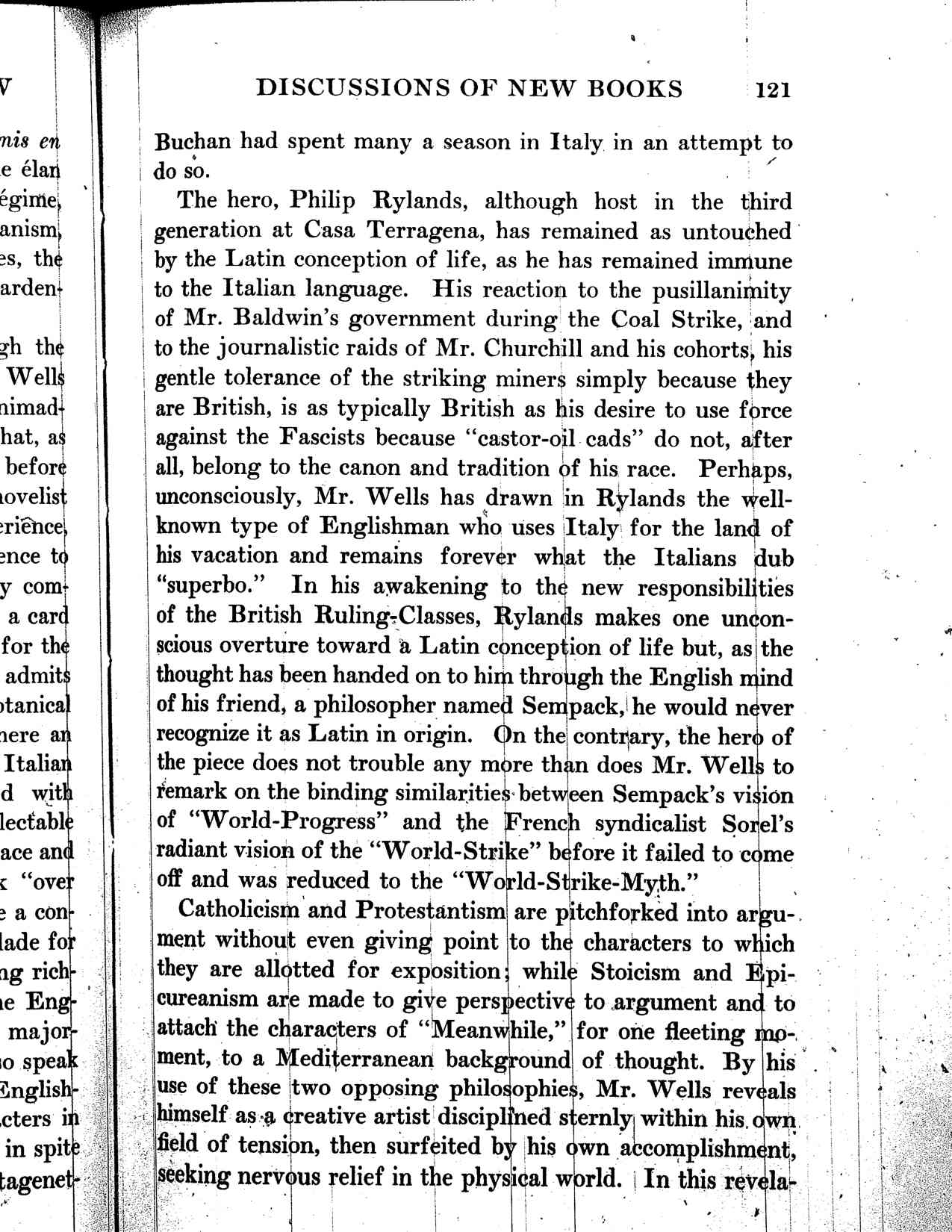
[new page]
Buchan had spent many a season in Italy in an attempt to
do so.
The hero, Philip Rylands, although host in the third
generation at Casa Terragena, has remained as untouched
by the Latin conception of life, as he has remained immune
to the Italian language. His reaction to the pusillanimity
of Mr. Baldwin’s government during the Coal Strike, and
to the journalistic raids of Mr. Churchill and his cohorts, his
gentle tolerance of the striking miners simply because they
are British, is as typically British as his desire to use force
against the Fascists because “castor-oil cads” do not, after
all, belong to the canon and tradition of his race. Perhaps,
unconsciously, Mr. Wells has drawn in Rylands the well-
known type of Englishman who uses Italy for the land of
his vacation and remains forever what the Italians dub
“superbo.” In his awakening to the new responsibilities
of the British Ruling-Classes, Rylands makes one unconscious
overture toward a Latin conception of life but, as the
thought has been handed on to him through the English mind
of his friend, a philosopher named Sempack, he would never
recognize it as Latin in origin. On the contrary, the hero of
the piece does not trouble any more than does Mr. Wells to
remark on the binding similarities between Sempack’s vision
of “World-Progress” and the French syndicalist Sorel’s
radiant vision of the “World-Strike” before it failed to come
off and was reduced to the “World-Strike-Myth.”
Catholicism and Protestantism are pitchforked into argument
without even giving point to the characters to which
they are allotted for exposition; while Stoicism and Epicureanism
are made to give perspective to argument and to
attach the characters of “Meanwhile,” for one fleeting moment,
to a Mediterranean background of thought. By his
use of these two opposing philosophies, Mr. Wells reveals
himself as a creative artist disciplined sternly within his own
field of tension, then surfeited by his own accomplishment,
seeking nervous relief in the physical world. In this revelation






